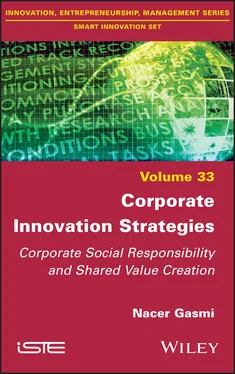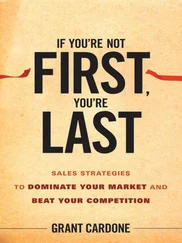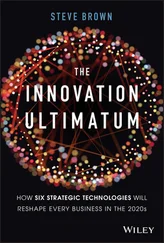The pro-social behavior of these CSR managers can be explained by different sources of motivation, ranging from pure selfishness to totally altruistic concerns (Grolleau et al . 2009). Purely altruistic behavior may promote values that are not shared by regulators. As individuals’ preferences are heterogeneous, it is therefore inevitable that the values of some managers do not fully reflect those of public policies. Altruistic motivation is also justified by image concerns, which thus serve as an inexpensive incentive for accountability. In this case, responsible behavior generates an image value that potentially increases the private individual performance of the company and thus reduces the cost of the negative societal externality to be corrected. Motivation can also be explained by considerations of personal and social esteem (Bénabou and Tirole 2010), in order to buy “free societal prestige” and demonstrate one’s generosity to others (Tirole 2009). CSR practices play the role of self-regulation, are motivated by moral concerns (Baron 2001) and can thus be considered a non-monetary managerial advantage (Baron et al . 2008) for the company.
2.3. CSR as a lever to avoid or mitigate the pressures exerted by soft power
Firms may also be led to adopt CSV strategies in response to actual or potential pressures from soft power stakeholders, who are considered by Van den Berghe and Louche (2005) as private, non-market and invisible political actors. The concept of soft power is defined by Nye (1990) as an ability to make others “want what you want”, developed during the years of Clinton’s presidency in the United States. Soft power refers to the power of influence and persuasion as a mode of regulation. These stakeholders, who may or may not have a voluntary or involuntary relationship with the company, under a rather implicit or moral contract, accept being exposed to certain risks. They are mainly embodied in a set of actors from civil society such as non-governmental organizations (NGOs), whistle-blowers, local communities, trade unions, scientists, ordinary citizens, the traditional or social media, public opinion and rating agencies 5 (Gasmi and Grolleau 2005). Van den Berghe and Louche (2005) point out that “stimulated and influenced by this invisible hand, market parties also start to consider CSR and good corporate governance as the prerequisite for sustainable growth and welfare within a globalizing business environment”. Soft power actors, such as NGOs, play a key role in identifying and issuing alerts to denounce companies with irresponsible behavior that causes negative social and/or environmental externalities produced by their activities, to encourage them to develop CSR practices that can reduce these externalities or generate positive externalities. This is the case, for example, with Nike, which was the target of attention (Kahle et al . 2000) due to its societal practices. The group has been the subject of numerous counter-advertisements, television and radio reports, anti-Nike websites, with particularly devastating effects, and even a film, The Big One 6 (1998), which reveals the deplorable working conditions of its sub-contractors (Gasmi and Grolleau 2005). The same is true of the Volkswagen group, which set up a vast system of rigging anti-pollution tests on 11 million vehicles worldwide, a system exposed by the International Council on Clean Transportation (ICCT), an American NGO specializing in clean transport, which decided to test the GHG emissions of certain diesel cars 7 . The group faced a potential fine of up to $18 billion and was also fined 1 billion euros 8 in June 2018, by the public prosecutor’s office in Brunswick, Germany. Challenging the monopoly of traditional forms of regulation (market, state, etc.), soft power stakeholders are increasingly calling for alternative societal regulation of economic activities. In the eyes of the public, they also represent a credible source of information 9 and action on companies, particularly on multinationals (Gasmi and Grolleau 2005). The legitimacy (voluntary commitment to the general interest) and the power of pressure that these stakeholders have exerted clearly demonstrate their ability to hold companies accountable for the negative social and/or environmental externalities produced by their activities (Porter and Kramer 2010). These pressures may lead companies to consider reducing these externalities. Soft power actors grant the company a “license to operate”, that is, they give “their approval” for the company to operate (Eccles and Serafeim 2014), while companies with questionable behavior may be “deprived” of it (Post et al . 2002). NGOs, described as private political actors by Baron (2001), threaten companies that behave irresponsibly, by conducting campaigns based on boycotting, denigration, revelations, etc. (Eccles and Serafeim 2014). The effectiveness of these threats above all concerns the most visible companies that are well known by the public. CSR can therefore play a role in reducing the risk of boycotts or hostile media campaigns initiated by soft power players. The institutional determining factors embodied by the stakeholders in the socio-political sphere, encourage companies to implement strategies based on CSV, which fall into two groups.
The first corresponds to the power or dependence on the resources that these stakeholders hold and that are likely to make the enterprise fragile, hence the legitimacy to operate and the urgency to address the environmental and social problems it poses (Mitchell et al . 1997). Legitimacy thus provides a concrete way for the firm to identify and make decisions about the social and environmental issues that matter to its stakeholders (Porter and Kramer 2010), by developing innovations in products, processes and business models that can provide reliable solutions to these issues. The second area, which leads the company to deploy societal approaches, is related to opportunities to improve relations with these stakeholders through CSV-based strategies. The challenge of societal commitment is then part of a strategy of institutional legitimization within the company (Dimaggio and Powell 1983; Suchman 1995). According to classical economic theory, this legitimacy is determined by the market, that is, the firm is considered an entity that is distinct from its environment, whereas with CSR, firms are part of systems that are strongly constrained by the environment in which they operate. Their legitimacy therefore does not only derive from profit-making or strict compliance with the law (Chelli 2011), but is more in line with a socio-political framework, rather than a market framework. The concept of organizational legitimacy is therefore not synonymous with legality, but rather refers to the conformity of a company’s objectives, products and procedures, with the societal norms and values that prevail in its field of activity. Legitimacy is also a congruence between the values associated with a company’s activities and the norms of acceptable behavior, defined by the social system to which it belongs. It provides the company with the approval of society and the opportunity to obtain the resources it needs to survive. Legitimacy could therefore be the result of a cyclical and dynamic process, involving a number of legitimization strategies (Chelli 2011). The question of legitimacy, which is consubstantial with social order, rests on people’s adherence to rationality and legality, that is, on the belief in the force of law and regulations (Capron and Quairel-Lanoizelée 2007). CSR thus offers the possibility of being a decisive lever which can be used to create legitimacy for the business. The aim of CSR strategies based on CSV is to lead the company to internalize the externalities produced by its activities and meet the expectations of all its stakeholders belonging to the socio-political sphere and the market. With CSR, the company’s legitimacy is not only limited to that of the market but also depends on the legitimacy granted by society.
Читать дальше












